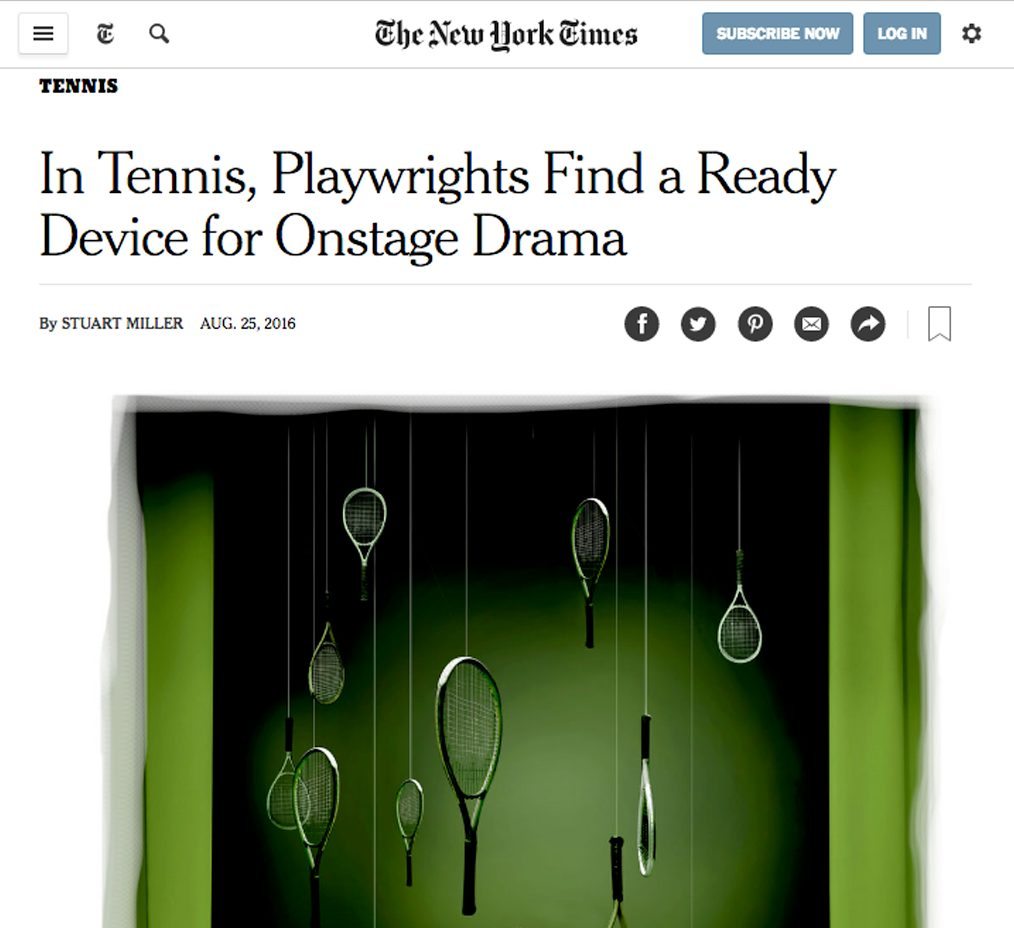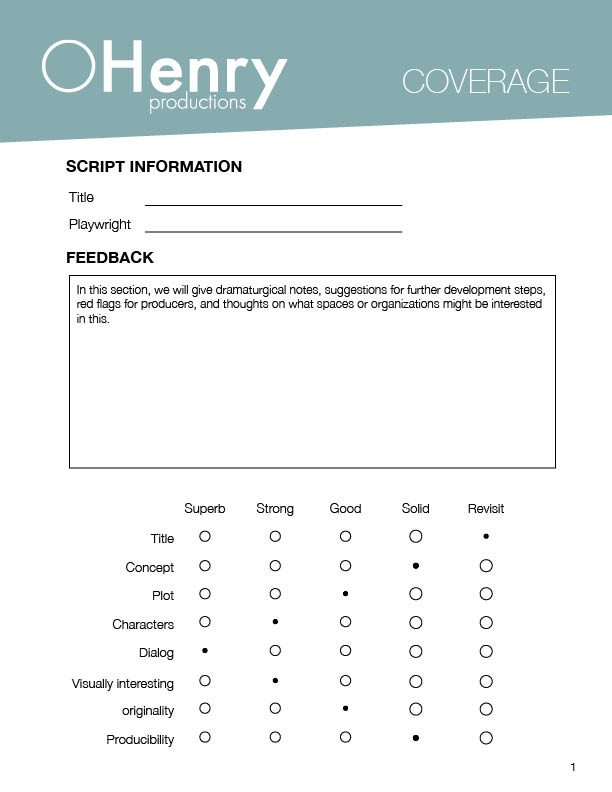THE PROM, AIN’T TOO PROUD, BEETLEJUICE & More Earn Drama League Awards Nominations!/h1>
April 17, 2019
by BWW News Desk
The Drama League (Gabriel Stelian-Shanks, Executive Artistic Director) today announced the 2019 Drama League Awards Nominees for Outstanding Production of a Play, Outstanding Revival of a Play, Outstanding Production of a Musical, Outstanding Revival of a Musical, and the much-coveted Distinguished Performance Award. The nominations were announced this morning by the current stars of Waitress, Shoshana Bean and Jeremy Jordan, at the official announcement event at Sardi’s Restaurant, which was streamed live online here at BroadwayWorld.
How likely are today’s nominees to earn a Tony nomination? Find out!
The nominations announcement begins a month of celebrations leading up to the 85TH Annual Drama League Awards, which will be held at the Marriott Marquis Times Square (1535 Broadway) on Friday, May 17, 2019 at 11:30am. Tickets and tables to the star-studded luncheon are available for purchase at www.dramaleague.org or by calling The Drama League at 212.244.9494; VIP tickets include access to the nominees’ reception.
The Drama League previously announced the 2018 Special Recognition Award Recipients: Tony® Award winner Kelli O’Hara will receive the Distinguished Achievement in Musical Theater Award; director Alex Timbers will receive The Founders Award for Excellence in Directing; and Taylor Mac will receive the Unique Contribution to the Theater Award.NOTE: THE BOYS IN THE BAND was not eligible for the Drama League Awards nominations because it could not accommodate the nominators, due to the limited ticket availability and limited run of the show.
2019 DRAMA LEAGUE AWARDS NOMINATIONS
…
OUTSTANDING PRODUCTION OF A BROADWAY OR OFF-BROADWAY MUSICAL
Ain’t Too Proud: The Life and Times of the Temptations
Book by Dominique Morisseau; Music and Lyrics from The Legendary Motown Catalog
Directed by Des McAnuff
Imperial Theatre
Produced by Ira Pittelman, Tom Hulce, Berkeley Repertory Theatre (Tony Taccone, Artistic Director; Susan Medak, Managing Director), Sony/ATV Music Publishing, EMI Entertainment World, Inc., Josh Berger, Ken Schur, Ron Simons, Stephen Byrd, Alia Jones, Ruth & Steve Hendel, Cheryl Wiesenfeld, Harriet Newman Leve, Jeffrey Finn, Stephen & Nancy Gabriel, Darren Bagert, David Binder, Wendy Federman, Susan Quint Gallin, Mickey Liddell, Robert Ahrens, Christopher Maring, David Mirvish, Stacy Jacobs, Marianne Mills, Loraine Alterman Boyle, deRoy-Winkler, Karmazin-McCabe, Koenigsberg-Krauss, Zell-Kierstead, Deborah Barrera, Robyn & Larry Gottesdiener, The Araca Group, Rashad V. Chambers, Mike Evans, Hani Farsi, The John Gore Organization, Mike Karns, Willette & Manny Klausner, Gabrielle Palitz, No Guarantees, Sheldon Stone, Stuart Weitzman and Universal Music Theatrical
Beetlejuice
Book by Scott Brown and Anthony King; Music by Eddie Perfect; Lyrics by Eddie Perfect
Directed by Alex Timbers
Winter Garden Theatre
Produced by Warner Bros. Theatre Ventures, Langley Park Productions, Jeffrey Richards, JAM Theatricals, IMG Original Content, Rebecca Gold, Ben Lowy, James L. Nederlander, Warner / Chappell Music, Inc. and ZenDog Productions; Produced in association with deRoy Federman Productions/42nd.club, Latitude Link, Mary Lu Roffe, Terry Schnuck, Marc Bell & Jeff Hollander, Jane Bergère, Joanna Carson, Darren DeVerna & Jere Harris, Mark S. Golub & David S. Golub, The John Gore Organization, Ruth & Steve Hendel, LHC Theatrical Fund, Scott H. Mauro, NETworks Presentations, No Guarantees, Gabrielle Palitz, Pierce Friedman Productions, Iris Smith and Triptyk Studios
Be More Chill
Book by Joe Tracz; Music and Lyrics by Joe Iconis
Directed by Stephen Brackett
Lyceum Theatre
Produced by Gerald Goehring, Michael F. Mitri, Jennifer Ashley Tepper, Marc David Levine, Marlene and Gary Cohen, 42nd.club, Viertel Routh Frankel Baruch Group, Jenny Niederhoffer, Ben Holtzman and Sammy Lopez, Jenn Maley and Cori Stolbun, Joan and Robert Rechnitz, Chris Blastings/Simpson & Longthorne, Koenigsberg/Federman/Adler, YesBroadway Productions, Kumiko Yoshii, Bruce Robert Harris and Jack W. Batman, Jay and Cindy Gutterman/Caiola Productions, Phil Kenny/Jim Kierstead, deRoy/Winkler/Batchelder, Jonathan Demar/Kim Vasquez, Brad Blume/Gemini Theatrical Investors, LLC, Alisa & Charlie Thorne, Fred and Randi Sternfeld, Connor Tinglum/Andrew Hendrick, Ashlee Latimer & Jenna Ushkowitz and Two River Theater
The Cher Show
Book by Rick Elice; Music by Various Artists
Directed by Jason Moore
Neil Simon Theatre
Produced by Flody Suarez, Jeffrey Seller and Cher
Hadestown
Music, Lyrics and Book by Anais Mitchell
Directed by Rachel Chavkin
Walter Kerr Theatre
Produced by Mara Isaacs, Dale Franzen, Hunter Arnold, Tom Kirdahy, Carl Daikeler, Five Fates, Willette & Manny Klausner, No Guarantees, Sing Out, Louise! Productions, Stone Arch Theatricals, Benjamin Lowy/Adrian Salpeter, Meredith Lynsey Schade, 42nd.club, Craig Balsam, Broadway Strategic Return Fund, Concord Theatricals, Laurie David, Demar Moritz Gang, Getter Entertainment, Deborah Green, Harris Rubin Productions, Sally Cade Holmes, Marguerite Hoffman, Hornos-Moellenberg, Independent Presenters Network, JAM Theatricals, Kalin Levine Dohr Productions, Phil & Claire Kenny, Mike Karns, Kilimanjaro Theatricals, Lady Capital, LD Entertainment, Sandi Moran, Tom Neff, MWM Live, Patti Sanford Roberts & Michael Roberts, Schroeder Shapiro Productions, Seriff Productions, Stage Entertainment, Kenneth & Rosemary Willman, KayLavLex Theatricals, Tyler Mount, Jujamcyn Theaters (Jordan Roth: President; Rocco Landesman: President Emeritus; Paul Libin: Executive Vice President Emeritus; Jack Viertel: Senior Vice President), The National Theatre and New York Theatre Workshop
Head Over Heels
Songs by The Go-Go’s; Conceived by Jeff Whitty; Original Book by Jeff Whitty; Book adapted by James Magruder; Based on ‘The Arcadia’ by Sir Philip Sidney
Directed by Michael Mayer
Hudson Theatre
Produced by Christine Russell, Louise Gund, Donovan Leitch, Rick Ferrari, Gwyneth Paltrow, Scott Sigman, Hunter Arnold, Tom Kirdahy, Jordan Roth, Julie Boardman, Broadway Strategic Return Fund, Vikram Chatwal, The John Gore Organization, NETworks Presentations, LLC, Insurgent Media, Robert Kravis, Art Lab, LLC, Marc Bell, Mara Burros-Sandler, Carrie Clifford, Adam Gorgoni, Carole Shorenstein Hays, Marguerite Hoffman, Dr. Michael Mintz, Sandi Moran, Paramount Pictures, Van Horn Doran Group, Eric Cornell, Jonathan & Nancy Glaser/Lucy Fato & Matthew Detmer, Heather Reid & Allison Milgard/NS HOH, LLC/Leslie Bourne & Lisa Martin, Franklin & Tracy Codel/Mike Singer/Taffy Stern, Oliver Roth/Kate Cannova/Anne & Larry Hambly and Brad Blume/Eric Gelb/Gary Nelson
The Hello Girls
Music and Lyrics by Peter Mills; Book by Peter Mills and Cara Reichel
Directed by Cara Reichel
Prospect Theatre Company/59 East 59 Theaters
Produced by Prospect Theatre Company (Cara Reichel, Artistic Director; Melissa Huber, Managing Director)
King Kong
Written by Jack Thorne; Score Composed and Produced by Marius de Vries; Songs by Eddie Perfect
Directed by Drew McOnie
Produced by Carmen Pavlovic, Roy Furman, Gerry Ryan, Len Blavatnik, Edward Walson, Benjamin Lowy, Bob Boyett, Harmonia Holdings, Peter Ivany, Bruce Robert Harris/Jack W. Batman, Peter May, Liebowitz/Grossman/Shields Productions, Iris Smith, Triptyk Studios, Robert Appel, Lynne & Marvin Garelick, The Shubert Organization (Philip J. Smith: Chairman; Robert E. Wankel: President), The Nederlander Organization (James L. Nederlander: President), Jujamcyn Theaters (Jordan Roth: President; Rocco Landesman: President Emeritus; Paul Libin: Executive Vice President Emeritus; Jack Viertel: Senior Vice President), Audrey Wilf, Aleri Entertainment, Sandy Robertson, Jennifer Fischer, Fantaci/Carusi/Lachowicz, Darren DeVerna, Jere Harris, The John Gore Organization, 42nd.club, HELLO Entertainment, Independent Presenters Network and Global Creatures
The Prom
Book by Bob Martin and Chad Beguelin; Music by Matthew Sklar; Lyrics by Chad Beguelin
Directed by Casey Nicholaw
Longacre Theatre
Produced by Bill Damaschke, Dori Berinstein, Jack Lane, James & Catherine Berges, Nelda Sue Yaw, Natasha Davison, Joe Grandy, Kimberlee Garris, Lisa Morris, Terry Schnuck, Jane Dubin, Rosalind Productions, Inc., Fahs Productions, Seth A. Goldstein, Mike Kriak, Don & Nancy Ross, Pamela Hurst-Della Pietra & Stephen Della Pietra, Cliff Hopkins, Masie Productions, Vivek Shaw, Three Belles & A Bob, Arment-Tackel, Armstrong-Manocherian, Fakler-Silver, Fox Theatricals-Mosbacher-Lonow, Palitz-Stern-Smedes, Nancy & Ken Kranzberg/David Lyons, Larry & Elizabeth Lenke/Elizabeth L. Green, Iris Smith/InStone Productions, Kuhlman-Ketner/Wallace-ATxRandomProductions, The John Gore Organization and The Shubert Organization (Philip J. Smith: Chairman; Robert E. Wankel: President); Produced in association with Independent Presenters Network, Margot Astrachan, Darren P. DeVerna & Jeremiah J. Harris and Reagan Silber
Rags Parkland Sings the Songs of the Future
Book, Music and Lyrics by Andrew R. Butler
Directed by Joran Fein
Ars Nova
Produced by Ars Nova (Jason Eagan, Founding Artistic Director and Renee Blinkwolt, Managing Director)
Tootsie
Book by Robert Horn; Music by David Yazbek; Lyrics by David Yazbek
Directed by Scott Ellis
Marquis Theatre
Produced by Scott Sanders, Carol Fineman, Unibail-Rodamco-Westfield, Columbia Live Stage, Sally Horchow, James L. Nederlander, Benjamin Lowy, Cindy and Jay Gutterman/Marlene and Gary Cohen, Judith Ann Abrams Productions, Robert Greenblatt, Stephanie P. McClelland, Candy Spelling, JAM Theatricals, Roy Furman, Michael Harrison/David Ian, Jamie deRoy/Catherine Adler/Wendy Federman/Heni Koenigsberg, JAA Productions/Stella LaRue/Silva Theatrical Group, Toho Co. Ltd., Jonathan Littman, Peter May, Janet and Marvin Rosen, Seriff Productions, Iris Smith, Bob Boyett, Thomas L. Miller, Larry J. Kroll/Douglas L. Meyer, Victoria Lang/Scott Mauro, Brunish/Caiola/Fuld Jr/Epic Theatricals, Ted Liebowitz/Lassen Blume Baldwin, The John Gore Organization, Ronald Frankel, Char-Park Productions, Chris and Ashlee Clarke, Fakston Productions, The Woodland Hills Broadway Group, 2 Js and an A, Inc., Tom McGrath/42nd.club, Drew Hodges and Peter Kukielski, Jim Fantaci, Frederike and Bill Hecht, Brad Lamm and Independent Presenters Network
…
read more













 A feud over the manner in which Off-Broadway‘s Ars Nova Theatre is being credited in the Broadway Playbill for Natasha, Pierre & the Great Comet of 1812 has caused a meteoric battle in the press.
A feud over the manner in which Off-Broadway‘s Ars Nova Theatre is being credited in the Broadway Playbill for Natasha, Pierre & the Great Comet of 1812 has caused a meteoric battle in the press.
